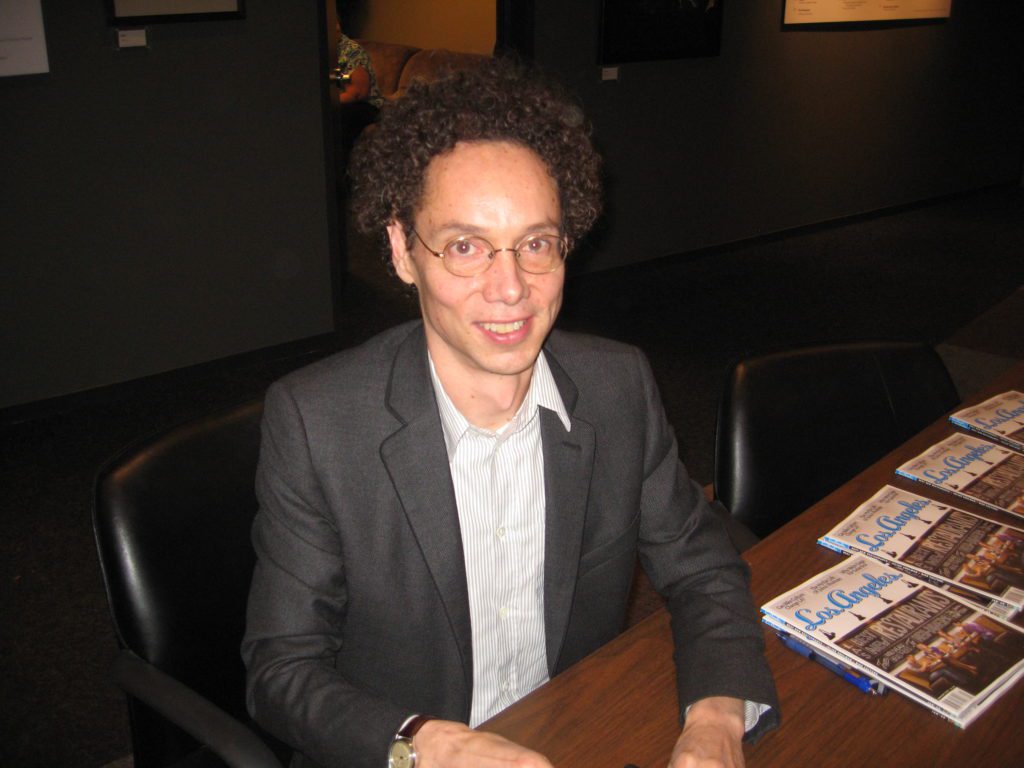Malcolm Gladwell: ‘Leave Your Little Island’ to Get Ideas for Stories
Have you noticed that many of the most creative people in the world have numerous passions and interests?
They’re not isolated on a solitary little island of music or dance or painting — they’re involved in numerous creative streams that feed each other.
Think of Lin-Manuel Miranda applying his love of hip-hop beats to the Broadway smash-hit musical Hamilton. Or Claudio Sanchez, frontman of the band Coheed and Cambria, weaving his sci-fi graphic novel stories into concept albums that have sold over one million records. Or Kurt Vonnegut, incorporating fantastical drawings into his iconic novels.
Neil Gaiman says most of his creative inspiration comes from outside the world of writing. In a recent writing MasterClass, Gaiman credited musicians Lou Reed and David Bowie as two of the biggest influences upon his work, and he said anything can be used as inspiration for writing.
Similarly, Malcolm Gladwell says that some of his best insights come from exploring other islands that are remotely connected to his writing topic.
“A pattern is something that appears in different worlds simultaneously…In order to see the trend, you just need to spend a little bit of time in those different worlds (music, fashion, sports, etc.),” says Gladwell. “So I always think part of what I need to do in order to kind of understand what’s going on is to make sure that I’m regularly leaving my own little island and visiting other islands.”
Gladwell’s 2013 book David and Goliath is a living example of “visiting other islands” during the writing process. In that book, Gladwell explores the hidden advantages of underdogs. Gladwell says that when he researched theological texts about the Biblical shepherd boy toppling the giant, all of them said the same thing. There was nothing new, nothing fresh.
Then he read a random medical paper written by an endocrinologist that injected new meaning into the Biblical story. The endocrinologist explained that Goliath likely had a rare medical condition (acromegaly) that led to his incredible height but also made him partially blind. Given that medical condition, David wasn’t as much of an underdog as we commonly think.
That insight became the foundation for Gladwell’s book about why we tend to overestimate giants and underestimate feisty underdogs.
“A story can live in a variety of worlds…when we try to tell a story, we think a story belongs to a world and we stay within that world,” says Gladwell. “And that’s a really good way to be boring and to miss truths.”
The best way to explore a topic is to approach it from a new angle. Connect two worlds that haven’t been connected before.
Embrace your diverse interests
I’ve read multiple authors who advise writing about only one or two topics. They say it’s crucial to concentrate on your niche and dominate that niche.
I disagree.
Each writer has a diverse array of interests. By embracing your unique intersection of passions, you can write more enjoyable and meaningful content. Write at the cross-sections of your passions, combining ideas from one field into another. This liberal arts style of writing can help you create something innovative and uniquely beautiful.
“Don’t throw any of yourself away. Don’t worry about a grand scheme or unified vision for your work,” writes Austin Kleon. “Don’t worry about unity — what unifies your work is the fact that you made it. One day, you’ll look back and it will all make sense.”
You can’t become an exceptional writer without getting out and experiencing the world. Your knowledge of other domains will not only fuel your creative tank but also generate insights for your work.
Experience the world
This is one of the reasons why so many writers prioritize travel: they’re plumbing for stories that can inject more meaning and humanity into their work. They want to taste the chocolatey sweetness of gelato in Florence, scale the Swiss alps, and feel the sting of the Saharan sun. These experiences change a person. Every country, every landmark, every culture you experience adds an arrow into your quiver of stories to be loosed upon the world at the proper time.
“Your brain gets too comfortable in your everyday surroundings,” says Austin Kleon. “You need to make it uncomfortable. You need to spend some time in another land, among people that do things differently than you. Travel makes the world look new, and when the world looks new, our brains work harder.”
But travel is definitely not the only way to experience the world and equip yourself with stories. As Robert Greene says, everything is material: overheard dialogue, interactions with friends, meetings at work, books, music on the radio, strangers you pass on the street.
Some of your best material will come from unexpected places — if you leave your mind open and your pen uncapped.
Don’t limit yourself to only the influences in your genre, your town, your culture. Drink from a wide-brimmed glass of creative inspiration.




